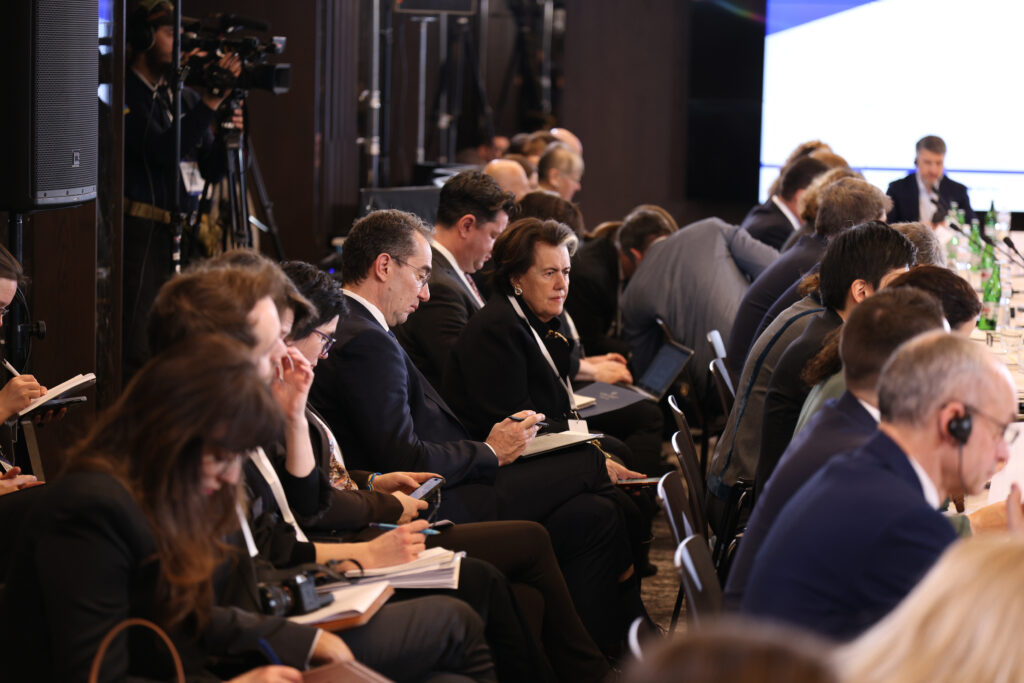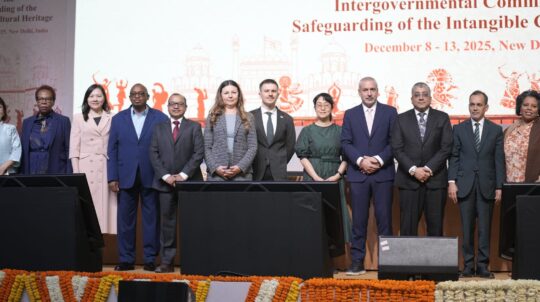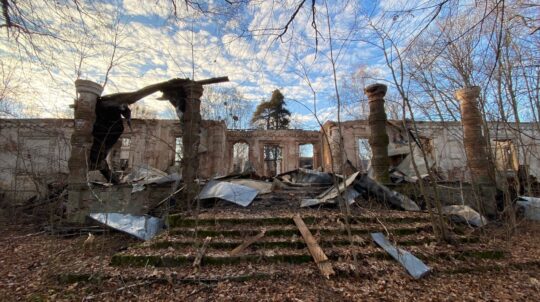On February 1, 2025, Uzhhorod hosted the international conference “Cooperation for Resilience”. The opening session highlighted culture as a key aspect of national security, with delegation leaders discussing efforts to protect and preserve Ukraine’s cultural heritage.
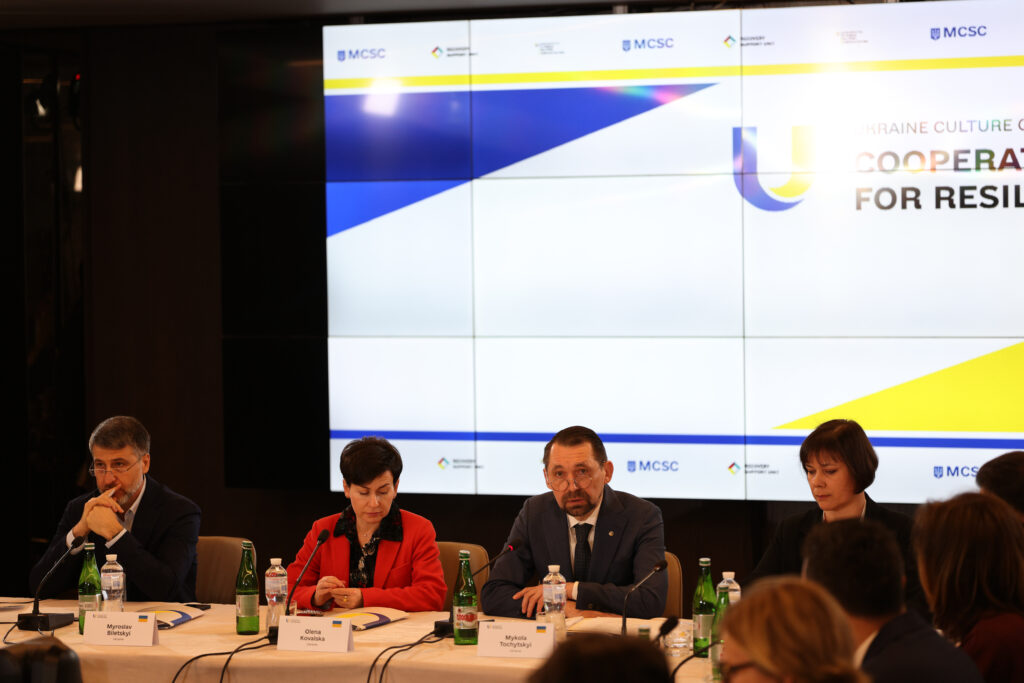
“Totalitarian regimes erase national identities for political and military gain. russia is destroying Ukrainian identity deliberately. That is why the international community must hold accountable any country that commits war crimes and destroys culture”, said Mykola Tochytskyi, the Minister of Culture and Strategic Communications of Ukraine.
Krista Pikkat, Director for Culture and Emergencies Entity in the Culture Sector (CLT/CEM) at UNESCO, emphasized that UNESCO has been monitoring Ukraine’s cultural heritage sites since the full-scale invasion began. “Our goal is to ensure long-term protection and restoration. We are developing a recovery plan. UNESCO will support Ukraine on a legislative level, promote key conventions, and involve experts to assess losses and enhance the protection of cultural heritage. Today’s meeting is a significant step forward”.
Many speakers emphasized the urgent need to prevent the erasure of Ukraine’s cultural identity, highlighting culture as a vital pillar in defending democracy.
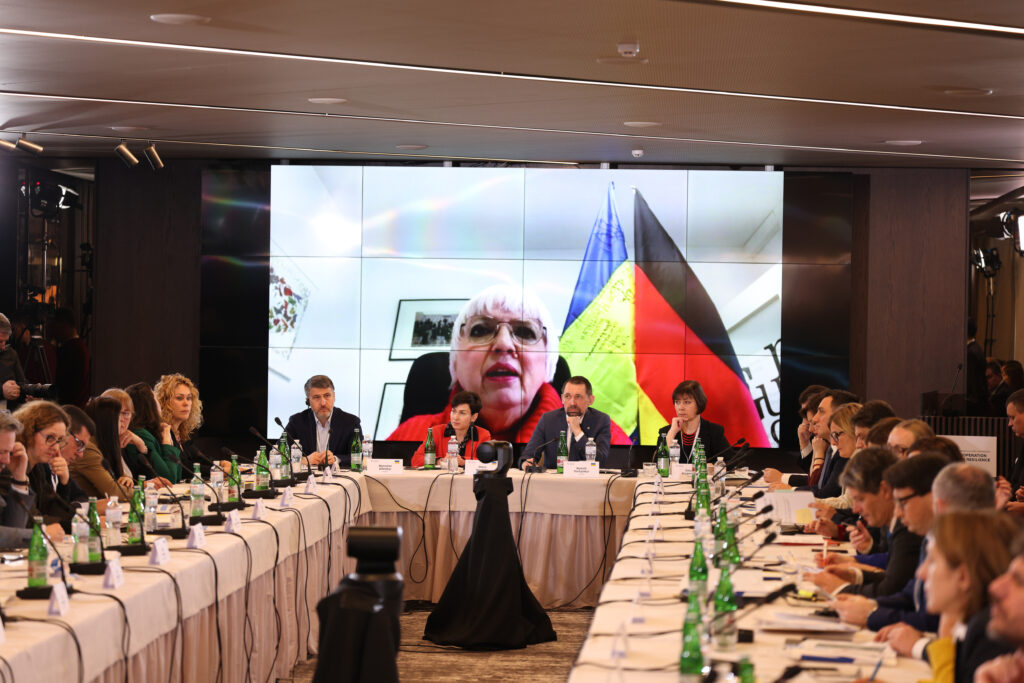
“I urge all democracies to unite in protecting Ukraine’s culture. Let’s support our Ukrainian colleagues’ initiative in Naples and work together to ensure the success of the International Ukraine Recovery Conference (URC 2025) in Rome. Culture is not a luxury for peaceful times; it is essential, especially now. It is the voice of our democracies, which is why dictators try to silence it”, said Claudia Roth, the Federal Government Commissioner for Culture and Media of Germany, State Minister.
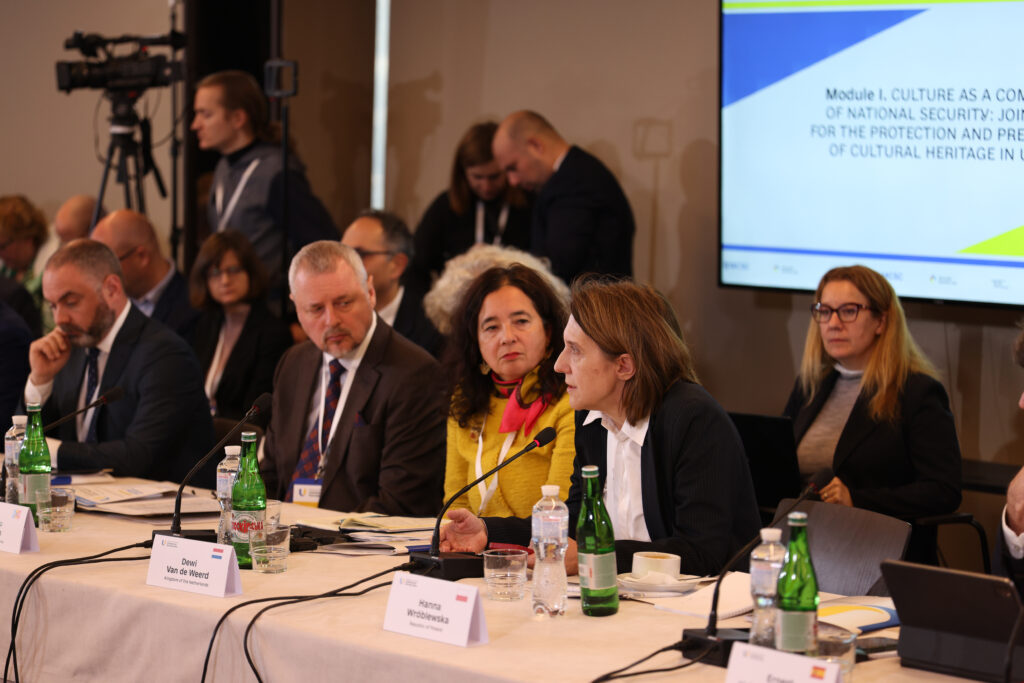
The discussion joined Lina Mendoni, the Minister of Culture of Greece, Hanna Wróblewska, the Minister of Culture and National Heritage of the Republic of Poland, Agnese Lāce, the Minister of Culture of the Republic of Latvia, Nina Obuljen Koržinek, the Minister of Culture and Media of the Republic of Croatia, Ernesto Urtasun Domènech, the Minister of Culture of the Kingdom of Spain, Mari-Leena Talvitie, Minister of Science and Culture of Finland, Parisa Liljestrand, Minister of Culture of the Kingdom of Sweden, Owen Bonnici, Minister for National Heritage, the Arts and Local Government of Malta, Eric Thill, the Minister of Culture of Luxembourg, Ingrida Veliute, the Vice Minister of Culture of the Republic of Lithuania, Dewi van de Weerd, Ambassador for International Cultural Cooperation, Ministry of Foreign Affairs of the Netherlands, Marian Bachev, the Minister of Culture of the Republic of Bulgaria, Mateja Prevolšek, Ambassador Extraordinary and Plenipotentiary of Slovenia to Ukraine, Taketsugu Ishihara, Second Secretary, Embassy of Japan in Ukraine.
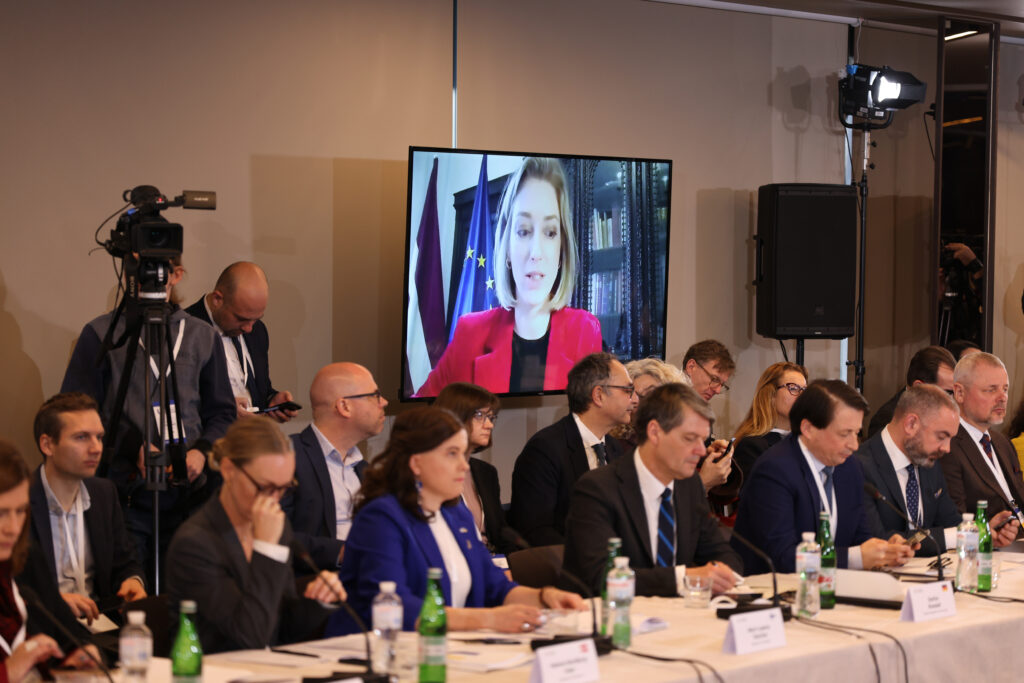
The “Cooperation for Resilience” conference serves as a preparation for the International Ukraine Recovery Conference (URC 2025), scheduled for July 2025 in Rome.
The first summit of culture ministers was organized by the Ministry of Culture and Strategic Communications of Ukraine and the Zakarpattia Regional Military Administration, in partnership with the Recovery Support Unit and UNESCO.
